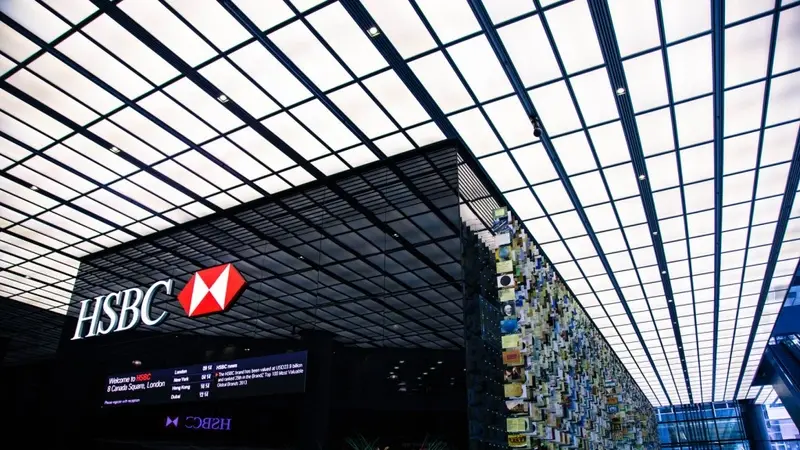
Global bank HSBC (HSBA) first quarter results reveal a 3% decline in adjusted pre-tax profits to $6.03bn on Friday. In 2007 the bank made a $20bn profit, albeit a figure unlikely to ever be repeated given the increasingly stiff industry regulations.
The share price is off a bit today, down 2.5% at 703p, yet the stock has still soared 65% in less than two years. Which begs the question, trading on a massive premium to its banking sector peer group, is HSBC too expensive given its limited growth prospects?
LEGAL BILLS AND BUYBACKS
The company’s statutory pre-tax profits came in at $4.8bn. The main difference between the adjusted and reported figures is a rough $1bn bill relating to various legal fees and regulatory fines, such as the mis-selling of mortgage-backed securities in the past.
Investors seem fairly unimpressed, although a bit of profit taking is presumably a factor. Today's market reaction comes despite the bank announcing a $2bn share buyback.
A LESS RISKY BANK
Investors have clearly appreciated HSBC's far more reliable trading track record. It didn't need to go cap in hand to taxpayers to be rescued, unlike Lloyds (LLOY) or Royal Bank of Scotland (RBS).
Since the financial crisis stringent new capital requirements have forced banks to address their risk-taking. New regulations such as Dodd Frank in the US and Basel in Europe has forced the industry to shore their balance sheets, an area where HSBC impressed, creating the impression that it is less risky than other banks.
HIGH YIELD, BUT NO PAYOUT GROWTH
The stock also pays a decent dividend. The equivalent of 39.1p per share ($0.53 is forecast, the bank reports in dollars) is forecast this year, implying a 5.5% income yield.
Yet even on that assumption it represents the first growth in the payout for at least three years. And analysts don't expect meaningful increases in the dividend right through to 2020.
PRICE TO BOOK IS TELLING
But it is HSBC's hefty premium to its sector that should really make investors ponder the merits of ongoing stock ownership. The stock's 1.3-times price to book valuation is almost twice as high as the 0.8 sector average. Barclays' (BARC) trades on a 0.7 multiple.
Price to book compares market capitalisation versus a company's net assets, the typical way to value banking stocks.
Gary Greenwood, analyst at Shore Capital, says that an improvement in returns ‘well beyond our own and consensus expectations is required to justify the current share price’.
He sees better options in the sector including emerging markets focused Standard Chartered (STAN).




